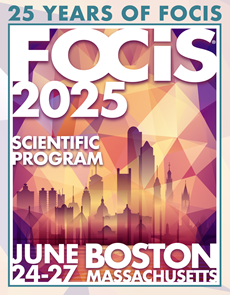Autoimmune Diseases
Session: Late-Breaking Abstracts
IL17-producing Follicular Helper T Cells Promote Germinal Center Autoreactivity in Systemic Lupus Erythematosus
Wednesday, June 25, 2025
3:45pm - 4:00pm East Coast USA Time
Location: Salons H-K
Snigdha Samarpita – Transplantation Research Center, Division of Renal Medicine, Department of Medicine – Brigham and Women’s Hospital, Boston, MA, USA; Sierra Richardson – Transplantation Research Center, Division of Renal Medicine, Department of Medicine – Brigham and Women’s Hospital, Boston, MA, USA; Jeong-Mi Lee – Transplantation Research Center, Division of Renal Medicine, Department of Medicine – Brigham and Women’s Hospital, Boston, MA, USA; Cecilia Cavazzoni – Transplantation Research Center, Division of Renal Medicine, Department of Medicine – Brigham and Women’s Hospital, Boston, MA, USA; Maya Gempler – Transplantation Research Center, Division of Renal Medicine, Department of Medicine – Brigham and Women’s Hospital, Boston, MA, USA; Pragya Chandrakar – Transplantation Research Center, Division of Renal Medicine, Department of Medicine – Brigham and Women’s Hospital, Boston, MA, USA; Hengcheng Zhang – Transplantation Research Center, Division of Renal Medicine, Department of Medicine – Brigham and Women’s Hospital, Boston, MA, USA; Cody Nelson – Transplantation Research Center, Division of Renal Medicine, Department of Medicine – Brigham and Women’s Hospital, Boston, MA, USA; Elsa Bechu – Transplantation Research Center, Division of Renal Medicine, Department of Medicine – Brigham and Women’s Hospital, Boston, MA, USA; Ridwan Rashid – Transplantation Research Center, Division of Renal Medicine, Department of Medicine – Brigham and Women’s Hospital, Boston, MA, USA; Wenliang Pan – Department of Medicine – Beth Israel Deaconess Medical Center, Boston, MA, USA.; George Tsokos – Department of Medicine – Beth Israel Deaconess Medical Center, Boston, MA, USA.; Peter Sage – Transplantation Research Center, Division of Renal Medicine, Department of Medicine – Brigham and Women’s Hospital, Boston, MA, USA
- MP
Manuel A. Podestà, MD, PhD
Physician Scientist
Fondazione IRCCS Ca' Granda Ospedale Maggiore Policlinico
Milano, Lombardia, Italy
Presenting Author(s)
Abstract Text: Introduction
Systemic lupus erythematosus (SLE) is an autoantibody-mediated disease affecting multiple organs. The frequency of circulating follicular helper T (Tfh) cells, which drive high-affinity antibody maturation, correlates with SLE activity. IL-17-producing T cells contribute to SLE development, and IL-17 inhibition improves disease in lupus-prone mice. We evaluated the role of IL17-producing Tfh (Tfh17) cells in SLE pathogenesis.
Methods
PBMCs from a cohort of SLE patients and healthy controls were analyzed. We generated lupus-prone mice in which IL17-producing Tfh cells could be fate-mapped and selectively depleted by diphtheria toxin (DT) administration (SLE Tfh17-DTR, Il17aCRE RosaLoxSTOPLox-YFP Cxcr5LoxSTOPLox-DTR Sle1+/+Yaa+). SLE Tfh17-FM (Il17aCRE RosaLoxSTOPLox-YFP Sle1+/+Yaa+), as well as Tfh17-FM and Tfh17-DTR mice (both Sle1−/−Yaa−) were used as controls.
Results
Tfh17 frequency was higher in SLE patients compared to healthy controls. Tfh17 cells peaked early (6 weeks) in SLE mice and could be selectively depleted by DT administration in the SLE Tfh17-DTR strain. Early Tfh17 deletion resulted in long-term reduction of splenic germinal center (GC)-B cells and plasmacells, and was associated with lower anti-dsDNA and anti-histone antibody levels at 20 weeks of life. Expression of IL17-receptor-A was higher on GC-B cells and plasmacells compared to follicular B cells in SLE mice. Bulk-RNAseq analysis of sorted B cell subsets exposed to IL-17a in vitro showed a higher fraction of differentially expressed genes in GC-B cells, with upregulation of a transcriptional program related to B cell survival and proliferation.
Conclusions
Tfh17 cells promote the formation of spontaneous germinal centers and the production of autoantibodies in SLE mice.
Systemic lupus erythematosus (SLE) is an autoantibody-mediated disease affecting multiple organs. The frequency of circulating follicular helper T (Tfh) cells, which drive high-affinity antibody maturation, correlates with SLE activity. IL-17-producing T cells contribute to SLE development, and IL-17 inhibition improves disease in lupus-prone mice. We evaluated the role of IL17-producing Tfh (Tfh17) cells in SLE pathogenesis.
Methods
PBMCs from a cohort of SLE patients and healthy controls were analyzed. We generated lupus-prone mice in which IL17-producing Tfh cells could be fate-mapped and selectively depleted by diphtheria toxin (DT) administration (SLE Tfh17-DTR, Il17aCRE RosaLoxSTOPLox-YFP Cxcr5LoxSTOPLox-DTR Sle1+/+Yaa+). SLE Tfh17-FM (Il17aCRE RosaLoxSTOPLox-YFP Sle1+/+Yaa+), as well as Tfh17-FM and Tfh17-DTR mice (both Sle1−/−Yaa−) were used as controls.
Results
Tfh17 frequency was higher in SLE patients compared to healthy controls. Tfh17 cells peaked early (6 weeks) in SLE mice and could be selectively depleted by DT administration in the SLE Tfh17-DTR strain. Early Tfh17 deletion resulted in long-term reduction of splenic germinal center (GC)-B cells and plasmacells, and was associated with lower anti-dsDNA and anti-histone antibody levels at 20 weeks of life. Expression of IL17-receptor-A was higher on GC-B cells and plasmacells compared to follicular B cells in SLE mice. Bulk-RNAseq analysis of sorted B cell subsets exposed to IL-17a in vitro showed a higher fraction of differentially expressed genes in GC-B cells, with upregulation of a transcriptional program related to B cell survival and proliferation.
Conclusions
Tfh17 cells promote the formation of spontaneous germinal centers and the production of autoantibodies in SLE mice.

